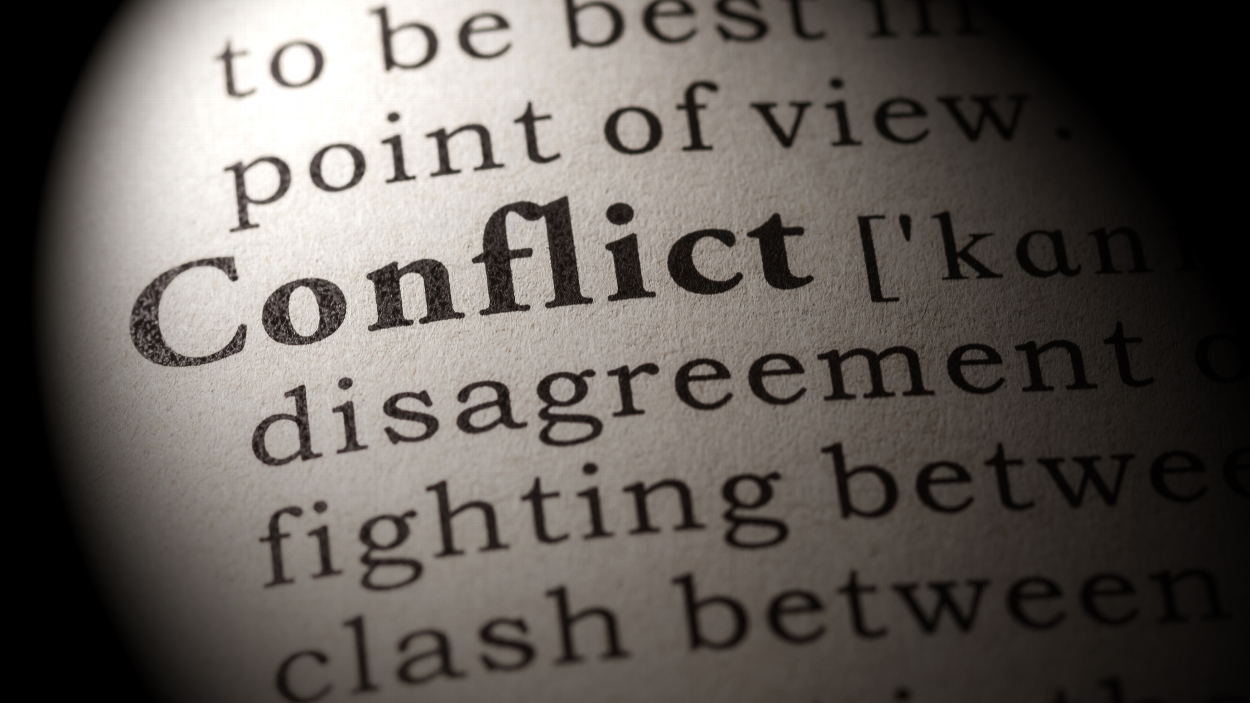While we all want to believe that the road for any relationship should be smooth and easy to navigate - that isn't always the case. Even the strongest of relationships can run into challenges, but the key is always how you deal with them. Internalising frustrations and anger can only lead to increased resentment, but when effectively communicating can be a tricky skill to master it can often feel like bottling up emotions is the easier choice.
Fear of conflict
A fear of conflict can stem from our caregivers' attitude to anger and ‘negative' emotions. If we have grown up in an environment where anger is not allowed, then we never learn how to deal with it which can lead to conflict avoidance behaviours in other relationships as we grow up. Equally, if anger was only ever experienced as a hugely explosive emotion with lots of yelling - it can result in a deep seated fear of causing that reaction in someone else.
This can manifest as passive aggressive behaviour and a refusal to deal with issues head on - refusing to directly deal with problems instead choosing to indirectly express negative feelings. This can take the form of sabotage - not being ready on time for an event for example, or not complying with a deadline; a hostile attitude or sulking.
Working with a counsellor to adapt a passive aggressive approach to conflict management to a more assertive communication style can be beneficial. Assertive communication means dealing with frustrations in a direct and honest manner. Rather than avoiding conflict, assertive communication encourages couples to tackle difficult issues head on instead of sweeping them under the rug or hiding them from each other. Assertive communication allows you to own your anger, and gives you the ability to communicate it to your partner without hurting them or causing further upset.
 Resentment in relationships
Resentment in relationships
Even the most committed relationships can harbour resentment. Feeling like you have been treated unfairly by your partner, that they have unrealistic expectations of you or that they just simply aren't listening to you are all things that can cause resentment to build. How many times have you started a conversation with your partner only to turn around and discover that they're looking at their phone or have left the room entirely?
Different life goals and changing as people can also cause resentment issues - for example changing your mind on whether you want to have children or not, or wanting to retrain for a different career path can all lead to a partner feeling resentful, like you've ‘changed the goalposts' or that you're forcing them into an unwilling compromise. While it is easy to say that it must be remembered that throughout the course of a relationship people will inevitably change, grow and become new people, it is a case of easier said than done when it is your own partner and your own life being affected.
Resentment can be shown in many different ways, but some of the most common signs can include
- An increase in sarcastic remarks or passive-aggressive comments
- Frequent feelings of disappointment
- Reduced interest in intimacy
- Complaining to others about your partner
As with most issues in relationships - resentment can often be dealt with by communicating more effectively. Utilising the services of a counsellor can allow you to do this in a neutral environment, with an impartial third party. Once you've identified why you're feeling resentful towards your partner it becomes easier to understand your feelings behind that feeling and therefore work towards a solution.

Unrealistic Expectations
In all of our relationships, parent/child, sibling, romantic partner, friend, work colleague etc, we have expectations of the other person. These expectations can vary from person to person, and also with the type of relationship bond. Expectations are a normal part of human relationships, however the difficulties start to come about when these become unrealistic.
Expecting your partner to instinctively know what it is you expect and want from them can be a sign that you may have unrealistic expectations. No one is a mind reader, and good communication can make all the difference here - what seems like a no brainer for one person will be something that another person had never considered important. Neither person is wrong, but each party needs to communicate with the other to put across their point of view. Unrealistic expectations combined with a passive aggressive attitude that you aren't going to tell your partner what's wrong until they figure it out can be a toxic combination for any relationship - identifying that this might be an issue and then working together, with the help of a counsellor if needs be can help you to identify these concerns and develop coping strategies if needed.
Expecting any relationship to survive without needing work put into it is wildly unrealistic. Regardless of the relationship - parent child, lovers, friends - there will naturally be misunderstandings, and times when your bond needs more work than others. Experiencing conflict or difficult times are not a signal to throw in the towel in your relationship, they all have tough moments. It simply means that together you need to put some work into understanding the causes of the conflict, and resolve it in a way that works for both parties.

Overcoming Difficulties
It is natural to think that every ‘good' relationship comes without any work and is always easy - when that's the line we're fed by almost every romantic movie or novel, it's easy to see why we might think that. But in actual fact, every relationship no matter how ‘good' or healthy it is, will come up against its difficulties and challenges. The key is how you deal with those challenges.
Resorting to passive aggressive behaviour, or harbouring resentment, can feel like the easy option, especially when the alternative is confronting issues and putting in work that can feel emotionally tough. However a lack of communication with your partner can ultimately lead to things feeling worse overall. When problems never get dealt with, and you resort to sniping at each other rather than actually tackling things in a head on manner, the pot of issues just gets bigger and feels like more of a problem than it ever needed to.
If you're struggling with passive aggressive behaviour or communication in your relationship, or find yourself feeling resentful towards your partner, counselling could help you learn to confront your issues in a healthy way. Contact me on 07305 920 437 for more details.
